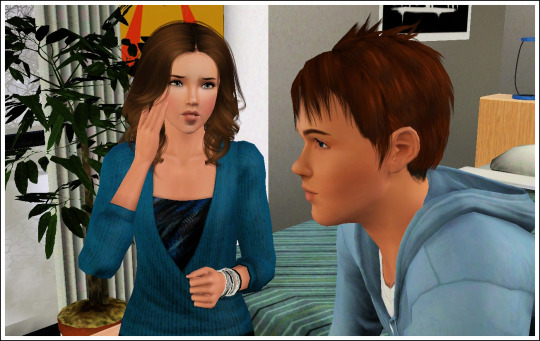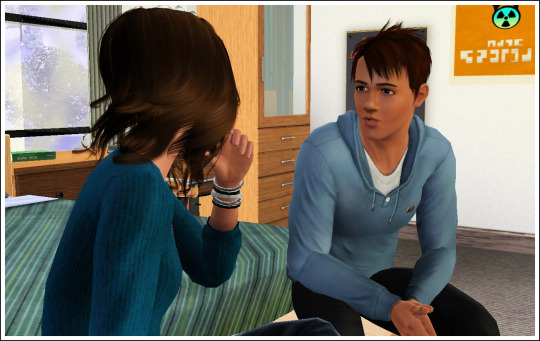#that's fair
Explore tagged Tumblr posts
Text

Good Morning. Come to a Good Morning every day no matter what on your own. Don't let anyone tell you how to do it.
#morning#good morning#good morning message#good morning image#good morning man#the good morning man#the entire morning#gif#gm#morning vibes#morning motivation#tgmm#☀️🧙🏼♂️✌🏼#spiderman#spidermans#spidermen#spiderman pointing meme#meme#memes#you're gonna regret it#learning#that's fair#you're right
82 notes
·
View notes
Note
Do you think drawing fat people is hard?
It’s a bit different from drawing slimmer people, especially when most references and art assets mainly showcase slimmer folks. Plus-sized characters in media are far and few in between, and they often just have a little more curve with a slim face. There's nothing wrong with that, but everyone has different weight distributions, which can lead to a lot of diversity in body types!
I don't think drawing fat people is “hard”, but it can take a little longer to seek out references for the anatomy. There are some good resources online but one I've found super helpful is FAT PHOTO REFERENCE, you need approval to access it but once you're in there are so many amazing photos of bigger people posing!
AdorkaStock (also known as Senshi Stock) have a great body diversity for art references, and a rich library of different poses!


In general, I decide what body shape I want to go for and add some mass to it based on my reference; I based a lot of my character designs on shapes, so that decided the weight distributions. Good to remember about weight is that it weighs (lol), so instead of just adding rounder shapes to characters, make sure it's also pulling down a little.


Double chins are very common but rarely showcased, so I think it's a good feature to add if you want to draw a bigger person.


I’m not sure if any of this is helpful, or if the question was meant to offer advice or just to critique my character designs (which is fair). As an artist, I've noticed that “flaws”—and I mean more than just weight, as someone who has struggled with my own size—make for more engaging character designs.
Adding my own insecurities to character designs helps me accept and embrace the uniqueness of features that aren't often seen; everyone deserves to be seen, because we’re all here, and life’s too short to strive for a picture-perfect existence.
#idk if you were trying to shade me here but#yeah fair i mainly draw the same characters that I hc to be more fit or slimmer.#that's fair#i like that the tmaoc have some more diversity in them I always get a little happy when the fat option wins#character deisgn#artist advice#art advice
81 notes
·
View notes
Note
Aro (autistic cuz ngl that probably affects things here) culture is liking green as probably like your 4th favorite colour or so, loving how it's used in art, surrounded by greenery in nature making everything feel amazing, adoring the greens used on most arospec flags, but I could NOT wear green if I tried. Something in my brain WILL yell at me for wearing anything that isn't black, grey, white or red and even then I'm slowly phasing out red for some reason which means I can never put on that Aro flag-coded fit (that I don't even own)
.
#aro culture is#aro#aromantic#actually aro#actually aromantic#ask#mod axel#autistic aro culture#that's fair
38 notes
·
View notes
Text





Just an equivalent exchange
(Their stick legs my love)
#that's fair#fnaf 9#fnaf 9 security breach#daycare attendant fnaf#daycare attendant#fnaf daycare attendant#dca sun#dca moon#fnaf dca#sundrop#moondrop#how many tags do i need#please
1K notes
·
View notes
Text
"Logan" meaning: "little hollow"
(Makes sense, he's got a Wade-sized hollow in his chest, and canonically at least he's little)
"Howlett" meaning: "son of Hugh"
(That's real I'm not making it up!!!)

#deadpool and wolverine#poolverine#wolverine#how!?#or maybe 'howlett'!?#we all know what wilson means#wade: the part of a stream you can wade through to the other side#that's fair#he expertly got logan onto his side of the time stream
39 notes
·
View notes
Text
Wednesday: "Yes yes. Thank you everyone. Now leave"
Xavier: "Jeez. Tell me you don't want us here without telling me you don't want us here"
Wednesday: "I don't want you here"
Enid: "Wednesday! Don't be mean. They made all this for us"
Wednesday: "Yes. And now I'd like to enjoy it without them"
#lmao#honestly#that's fair#she just wants to be alone with enid#fair enough#wednesday#wednesday addams#enid sinclair#enid#xavier#xavier thorpe#wenclair#wenclair cult
215 notes
·
View notes
Text

Dear Anonymous,

...............

Admittedly, I was once overzealous in my use of the whip in my quest for revenge. However, my brother and the man himself returned back my whip. I don't intend to give it up over past mistakes.
- Franziska von Karma
#Anonymous#Franziska von Karma#Phoenix Wright#Miles Edgeworth#Ace Attorney#Mod Commentary#That's fair
22 notes
·
View notes
Text

It really is.
#morning#good morning#good morning message#good morning image#good morning man#the good morning man#the entire morning#gif#gm#morning vibes#morning motivation#tgmm#☀️🧙🏼♂️✌🏼#tweet#twitter#sun#the sun#american#born in the usa#crap site#russian#propaganda#russian propaganda#that's fair#it really is#hairdresser#haircut#stylist#ipad
86 notes
·
View notes
Text

#that's fair#i'll be back soon the hermit instincts are just winning at the moment#i'm going for a psychiatric screening on monday#hn
6 notes
·
View notes
Text
Erandur: This is such a bad idea.
Last Dragonborn: Then why are you coming along?
Erandur: One of us needs to be able to talk the cops out of arresting us when this inevitably goes wrong.
#that's fair#erandur#Dovahkiin#oc: aurora orianus#nerevar queue and star#incorrect quotes#incorrect elder scrolls#incorrect skyrim quotes#tes#the elder scrolls#skyrim#the elder scrolls v: skyrim#source: tumblr#last dragonborn
89 notes
·
View notes
Text
There is a dog in my apartment and she does not want to be pet. And I respect that, but what the fuck.
#She gave me some sniffs and wandered away#Which was indication enough if I'm being honest#But I reached out a hand a couple minutes later and she fully pulled away and looked at me reproachfully#That's fair#I immediately backed off and she relaxed again#Happy to have you babygirl but I'm dyin a little here
12 notes
·
View notes
Text
Winter 08: Consequences (22/56)

Finn sighed, "Maybe that's true, but I still find it hard to put all my trust in your words, Sadie..."

Sadie could feel tears well up in her eyes and violently wiped them away. "Are you saying you don't want to be with me anymore now that you know this?"

Finn looked at her and seemed to be contemplating her question. "No." He then said, "That's not what I'm saying. Not yet, anyway. But I'm also not saying I do want to be with you. I need time to think about all this and whether or not I can trust you."

29 notes
·
View notes

